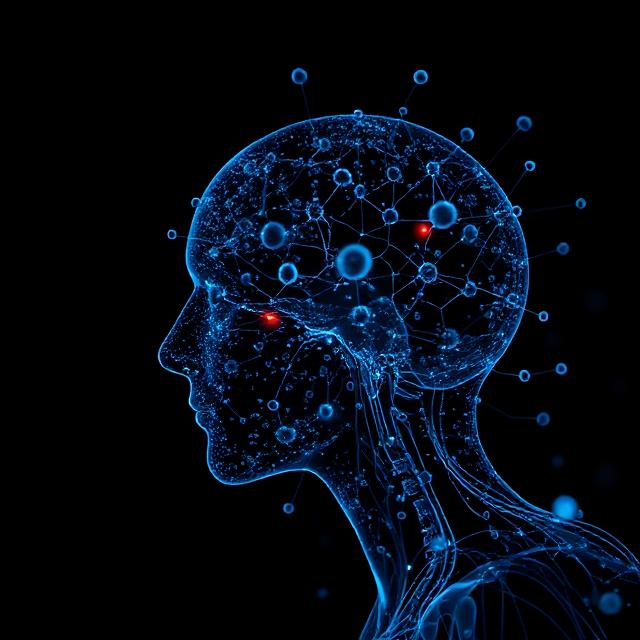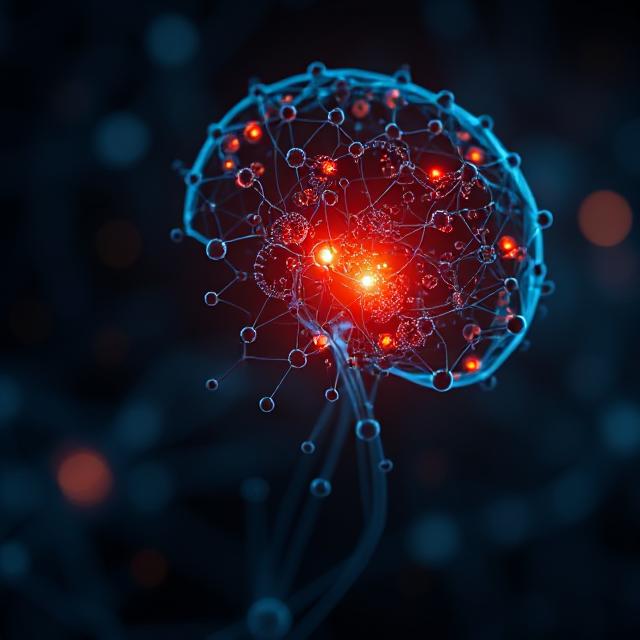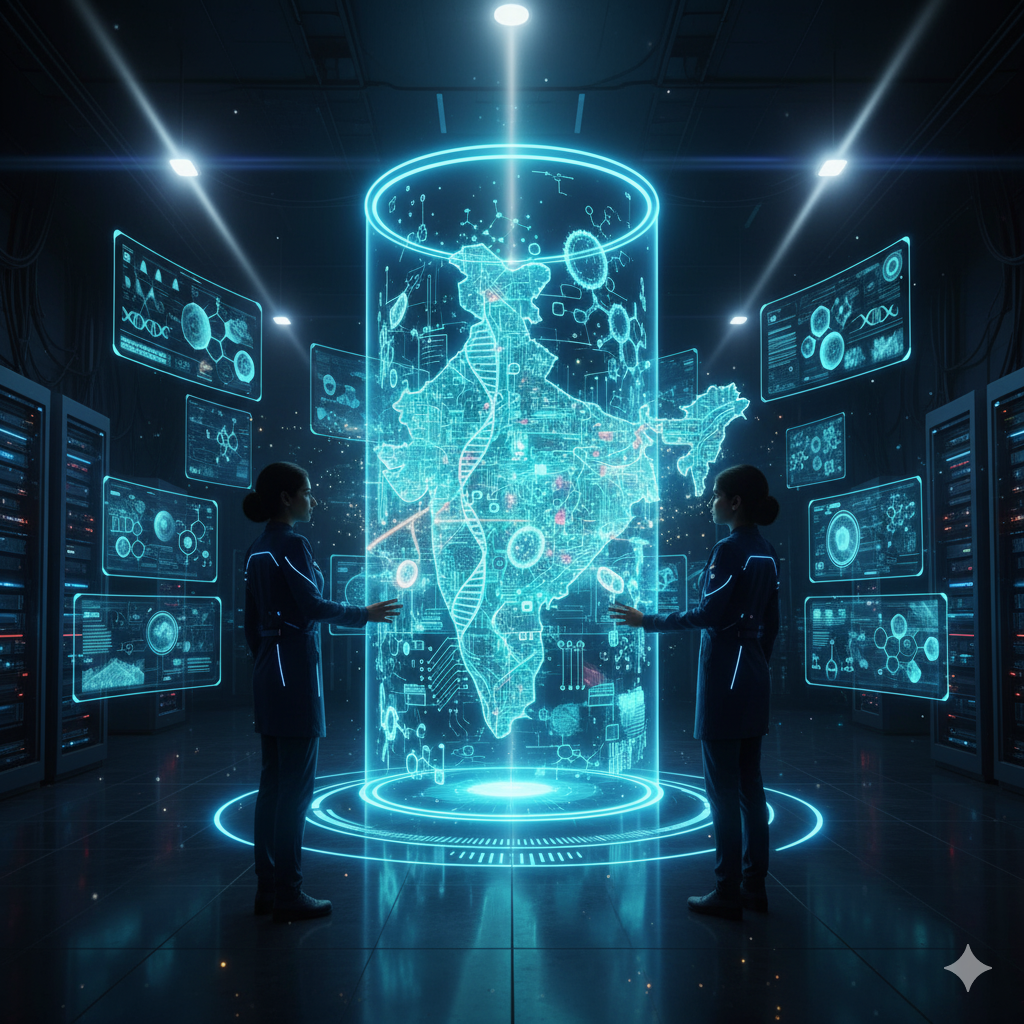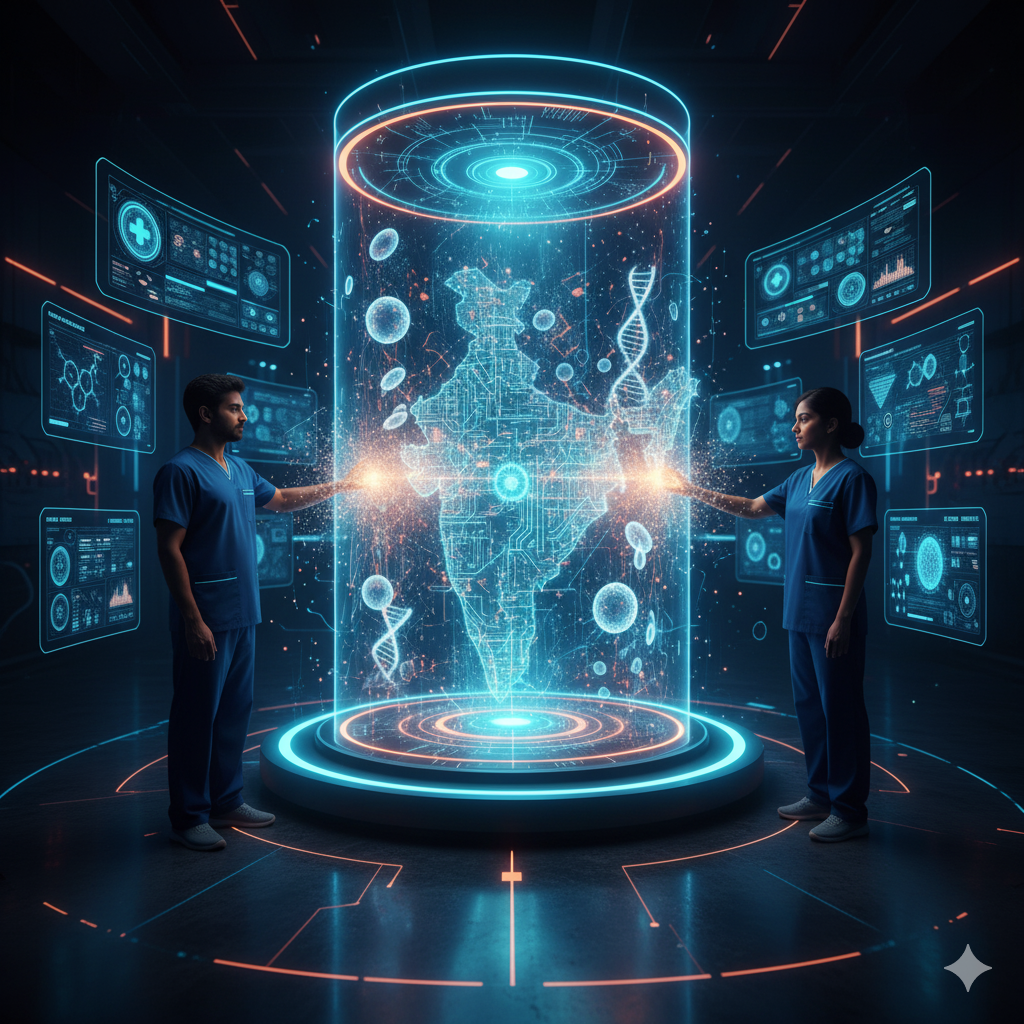Introduction
The healthcare industry stands at the crossroads of a revolution, one driven not by new drugs or surgical methods, but by Artificial Intelligence (AI). From diagnosing diseases to predicting treatment outcomes and discovering new drugs, AI is transforming healthcare into a more predictive, personalized, and preventive model. Among the most profound impacts of AI is its role in drug discovery and development, a field traditionally plagued by high costs, long timelines, and frequent failures.
AI accelerates the process of drug development by analyzing vast datasets, predicting molecular behavior, and optimizing clinical trials. Similarly, in healthcare, AI-driven tools enhance diagnostic accuracy, support clinical decision-making, and improve patient outcomes. This article explores the integration of AI in drug discovery and healthcare, the technologies enabling it, real-world applications, benefits, limitations, and its future prospects.
Understanding AI in Drug Discovery
What Is Drug Discovery?
Drug discovery is the process through which new medications are identified, developed, and brought to market. This involves several complex stages:
- Target identification
- Hit generation
- Lead optimization
- Preclinical studies
- Clinical trials
Traditionally, this process takes 10–15 years and costs billions of dollars, with a high rate of failure.
Role of AI in Drug Discovery
AI accelerates and improves the accuracy of each stage through:
- Pattern recognition: Identifying potential drug candidates.
- Data mining: Extracting useful information from biological data.
- Molecular modeling: Predicting how molecules interact with biological targets.
- Simulation and prediction: Forecasting clinical trial outcomes.
Technologies Powering AI in Drug Discovery
- Machine Learning (ML):
- Learns patterns from large datasets and predicts outcomes such as binding affinity and toxicity of compounds.
- Used in QSAR (Quantitative Structure-Activity Relationship) models to predict biological activity.
- Learns patterns from large datasets and predicts outcomes such as binding affinity and toxicity of compounds.
- Deep Learning:
- Especially useful in analyzing unstructured biomedical data such as images and genetic sequences.
- Convolutional Neural Networks (CNNs) and Recurrent Neural Networks (RNNs) are used in genomics and proteomics.
- Especially useful in analyzing unstructured biomedical data such as images and genetic sequences.
- Natural Language Processing (NLP):
- Extracts insights from scientific literature, patents, and clinical trial reports.
- Speeds up knowledge extraction for hypothesis generation.
- Extracts insights from scientific literature, patents, and clinical trial reports.
- Generative AI and GANs (Generative Adversarial Networks):
- Used to design novel drug molecules with desired properties.
- Helps in creating synthetic datasets for rare diseases.
- Used to design novel drug molecules with desired properties.
- Molecular Docking and Simulation Tools:
- Predict interactions between drugs and target proteins.
- Combined with AI for faster and more accurate predictions.
- Predict interactions between drugs and target proteins.
AI Applications in Drug Discovery
1. Target Identification and Validation
AI models identify new biological targets such as proteins or genes that cause diseases. These targets are then validated using computational simulations and databases.
- Example: BenevolentAI uses AI to identify drug targets for diseases like Parkinson’s.
2. Molecular Screening
AI helps screen billions of chemical compounds to identify the ones most likely to be effective against a target.
- Example: Atomwise uses deep learning to predict the binding affinity of molecules.
3. Lead Optimization
Once a potential drug is identified, AI can help improve its properties like solubility, toxicity, and bioavailability.
4. Drug Repurposing
AI identifies new uses for existing drugs, reducing development time and cost.
- Example: During the COVID-19 pandemic, AI helped identify existing antivirals that could be repurposed for treatment.
5. Clinical Trial Design and Recruitment
AI predicts which patients are most likely to respond to a drug and helps design more effective trials.
- Example: IBM Watson assists in identifying patients for oncology trials based on genetic and clinical data.
Understanding AI in Healthcare
Role of AI Across the Healthcare Ecosystem
AI is not limited to laboratories or research facilities. It is now a key part of healthcare delivery at all levels.
1. Disease Diagnosis
AI algorithms analyze medical images (like X-rays, MRIs) to detect diseases such as cancer, fractures, and pneumonia with high accuracy.
- Example: Google’s DeepMind developed an AI that outperforms radiologists in breast cancer detection.
2. Predictive Analytics
AI predicts the likelihood of disease onset, hospital readmissions, or deterioration in chronic patients using electronic health records (EHRs).
3. Personalized Treatment
AI tailors treatment plans based on genetic data, lifestyle, and medical history.
- Example: Tempus uses AI to personalize cancer therapy recommendations.
4. Virtual Assistants and Chatbots
AI-powered chatbots help patients with appointment scheduling, medication reminders, and answering health queries.
- Example: Babylon Health’s AI chatbot offers symptom analysis and health advice.
5. Surgical Assistance
AI supports robotic surgeries by providing real-time feedback, enhancing precision, and minimizing human error.
Real-World Case Studies
1. Insilico Medicine
- Developed an AI-designed drug for fibrosis that entered human clinical trials in less than 18 months—a process that usually takes years.
2. Deep Genomics
- Uses AI to identify genetic mutations responsible for diseases and suggest potential RNA therapies.
3. PathAI
- Uses AI to help pathologists in diagnosing diseases with more accuracy, especially in cancer histopathology.
4. India’s Use of AI in Healthcare
- Aravind Eye Care System uses AI for detecting diabetic retinopathy in rural India.
- NITI Aayog collaborates with tech firms to implement AI for tuberculosis and cancer detection.
Benefits of AI in Drug Discovery and Healthcare
1. Speed and Efficiency
- Reduces drug development time from years to months.
- Rapid data analysis in clinical settings improves decision-making.
2. Cost Reduction
- Fewer failed experiments, optimized clinical trials, and efficient processes lower R&D costs.
3. Higher Accuracy
- AI can detect patterns unnoticeable to humans, resulting in more accurate diagnostics and treatment.
4. Personalized Care
- Tailors treatment to individual genetic and lifestyle profiles, improving outcomes.
5. Resource Optimization
- AI reduces the burden on healthcare workers by automating routine tasks and administrative functions.
Challenges and Ethical Concerns
1. Data Privacy and Security
- Healthcare data is sensitive. AI systems must ensure robust protection against breaches and misuse.
2. Bias in AI Models
- Biased training data can result in inaccurate or unfair medical decisions, particularly for underrepresented groups.
3. Explainability
- AI decisions, especially in clinical settings, need to be transparent and explainable for doctors and regulators.
4. Regulatory Hurdles
- Drugs developed by AI face challenges in regulatory approvals due to lack of standard guidelines.
5. Dependency on High-Quality Data
- AI requires large volumes of clean, well-annotated data, which is often not available, especially in developing countries.

The Future of AI in Drug Discovery and Healthcare
1. AI-First Drug Development
- The future may see “AI-first” drug pipelines where drug candidates are conceptualized entirely by AI.
2. Integrated AI Systems
- Unified platforms will integrate AI for diagnostics, patient records, clinical trials, and treatment planning.
3. Global Disease Surveillance
- AI will play a critical role in tracking pandemics, predicting outbreaks, and managing public health crises.
4. Democratization of Drug Discovery
- Open-source AI tools and cloud platforms will allow researchers worldwide to contribute to drug development.
5. AI and Genomics
- Integration of AI with genomics will drive a new era of precision medicine tailored to individual DNA profiles.
Conclusion
AI is no longer a futuristic concept in healthcare and drug discovery—it is a present-day reality that is reshaping the very fabric of medicine. By accelerating drug discovery, enabling precision healthcare, and making diagnostics more accurate, AI holds the potential to save lives, reduce costs, and make healthcare more accessible.
However, the integration of AI must be approached with caution, ensuring that ethical standards, data privacy, and inclusivity are maintained. Governments, scientists, and technologists must collaborate to build AI systems that are not only intelligent but also trustworthy and equitable.
The coming decades will witness a healthcare revolution—powered not just by biology, but by algorithms.




